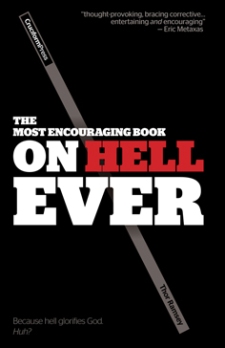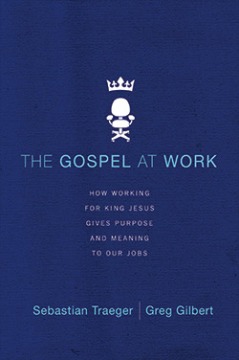 I guess it’s fine to do without Hell right? No. That’s the main thesis of this book. How important is the doctrine of hell for a christian? Quite important it seems. Ramsey has great a done job defending for the biblical teaching of hell.
I guess it’s fine to do without Hell right? No. That’s the main thesis of this book. How important is the doctrine of hell for a christian? Quite important it seems. Ramsey has great a done job defending for the biblical teaching of hell.So why can't we do away with this seemingly bad ‘PR’ topic? Lots it seems. 4 main things are lost to christians (and even to non-christians) who do not believe in the reality of hell. I will do a short summary of each of the chapters in the book.
We lose the fear of God. If hell isn't real, then God doesn't really hate sin. And if He doesn’t, then why should I be saved from sin?
We lose the holiness of God. Who have sinned truly offended? A truly infinitely holy God, take out hell and you lose this important character of God. Ramsey also helpful shows by as christians why we don’t just ‘hate the sin and love the sinner’ (you have to read the book for it!).
We lose the gospel of God. Is being a christian only about escaping hell? No! It’s much more than that. It shows how much God loved me despite of my sins and willingly sent his Son to die and resurrect for me. Take away hell, and there is no necessity of having Christ alone as our Saviour.
We lose the love of God.This part deals with the more modern ideas of why christians have to reject hell (e.g. Rob Bell’s book on hell). What they argue for is that the God who sends people to hell isn't convincing enough, they need a God of love, that will convince them. What they have forgotten is how thoroughly sinful we really are. If God had waited for us to response then save us, He is really that loving. But if God choses to saves us from sure destruction and while we will never turn to Him, that’s a truly loving God.
Lastly, an appendix to deal with annihilationism. Which is a short, good defence on why as Christians we should not believe in it. And a note to Pastors on how to preach hell to your congregation.
What I found was good about this book was how the argument clearly showed the foolishness and danger in believing that Christians can actually remove hell and still have the essentials of the Gospel intact. Ramsey shows that is impossible. It was akin to how Machen showed that Liberalism was not even remotely close to Christianity, and what they doctrines really meant.
One criticism about of the book was how Ramsey started the first one of two chapters rather causally, too causal I would suppose. I remember thinking that I would have changed some of them in a manner that would have brought out the seriousness of why Christian must believe in the doctrine of hell. Thankfully, that was the only time I had that thought, the rest of the book was great to read, engaging and maintain a seriousness to it’s tone without sound like a boring lecture.
This is a great book for all christians to read, I doubt many would have thought about how important hell is to the christian faith. After reading this, I doubt you would ever think in that same way ever.
Rating: 4.75/5
If you're interested you can get it here and here (free international shipping), Kindle.
